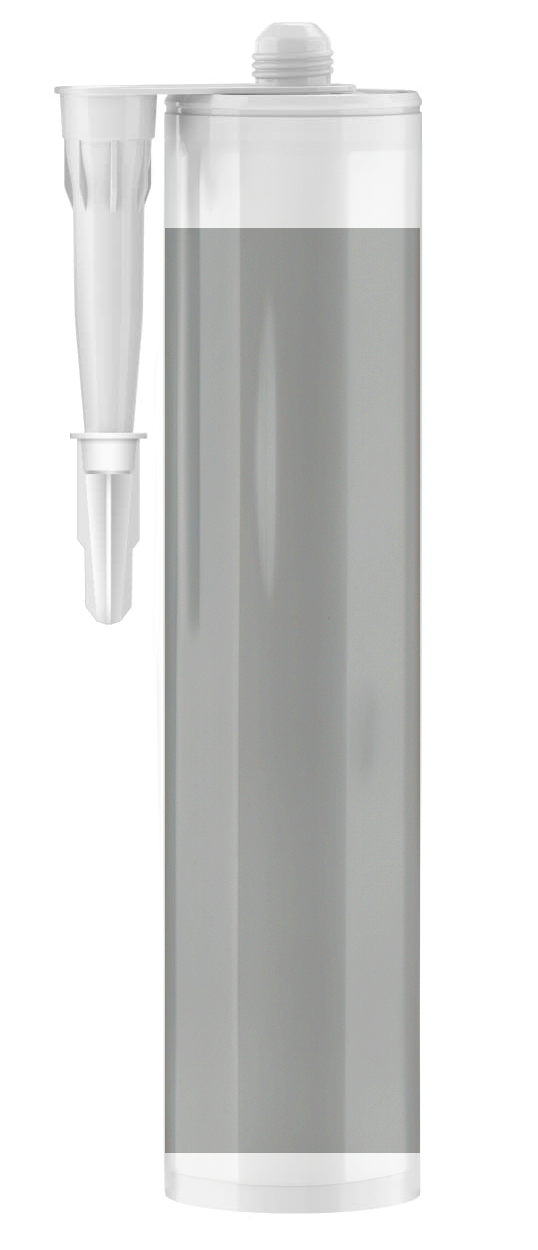BS-2000 Series | Silyl Modified Polymers (SMP)
- High Temperature Gap Filler
- Silicone-Free & Silyl Modified Polymer (SMP) Chemistry
- Stable thermal performance during Aging test
Product Description
BS-2000 is a high-performance, silicone-free, dual-component gap filler specifically designed for efficient thermal management in electronics and automotive applications. BS-2000 is ideal for filling and leveling gaps between heat-generating components and cooling plates, ensuring optimal heat dissipation and enhancing the longevity and reliability of your devices.
BS-2000 features SMP (Silyl Modified Polymer) chemistry, which significantly enhances adhesion throughout its entire service life. Unlike silicones or polyurethanes (PUs), the thermal resistance of this material improves over time, allowing for the use of lower initial thermal conductivity values without compromising long-term performance. This ensures consistent and reliable thermal management, making it an ideal choice for reliability demanding applications.
Technical Specifications
| General Properties | |||||
| Chemistry Type | SMP | ||||
| Density (g) | 2.45 g/cm3 | ||||
| Filler Content | Non-abrasive ceramic filler % | ||||
| Mix Ratio Mix Ratio The amount of a constituent divided by the total amount of all other constituents in a mixture | 10:1 | ||||
| Pot Life Pot Life Pot life is the amount of time it takes for the viscosity of a material to double (or quadruple for lower viscosity materials) in room temperature after a material is mixed. It is closely related to work life but it is not application dependent, less precise and more of a general indication of how fast a system is going to cure. | 0.5 hours | ||||
| Physical Properties | |||||
| Viscosity Viscosity Viscosity is a measurement of a fluid’s resistance to flow. Viscosity is commonly measured in centiPoise (cP). One cP is defined as the viscosity of water and all other viscosities are derived from this base. MPa is another common unit with a 1:1 conversion to cP. A product like honey would have a much higher viscosity -around 10,000 cPs- compared to water. As a result, honey would flow much slower out of a tipped glass than water would. The viscosity of a material can be decreased with an increase in temperature in order to better suit an application | 0.000130 mPa.s | ||||
| Electrical Properties | |||||
| Dielectric Strength Dielectric Strength Dielectric strength is measured in kV per mm and is calculated by the Breakdown voltage divided by the thickness of the tested material. Those two properties go hand in hand and while Breakdown voltage is always thickness dependent, dielectric strength is a general material property. As an example, the dielectric strength of Polyimide is 236 kV/mm. If we place 1mm of Polyimide between two electrodes, it will act as an insulator until the voltage between the electrodes reaches 236 kV. At this point it will start acting as a good conductor, causing sparks, potential punctures and current flow. | ≥10 kV/mm | ||||
| Volume Resistivity Volume Resistivity Volume resistivity, also called volume resistance, bulk resistance or bulk resistivity is a thickness dependent measurement of the resistivity of a material perpendicular to the plane of the surface. | 1.0x1011 Ohms⋅cm | ||||
| Mechanical Properties | |||||
| |||||
| Elongation Elongation Elongation is the process of lengthening something. It is a percentage that measures the initial, unstressed, length compared to the length of the material right before it breaks. It is commonly referred to as Ultimate Elongation or Tensile Elongation at break. | 9.2 % | ||||
| |||||
| |||||
| Thermal Properties | |||||
| Operating Temperature | 150 °C | ||||
| Thermal Conductivity Thermal Conductivity Thermal conductivity describes the ability of a material to conduct heat. It is required by power packages in order to dissipate heat and maintain stable electrical performance. Thermal conductivity units are [W/(m K)] in the SI system and [Btu/(hr ft °F)] in the Imperial system. | ≥ 2.0 W/m.K | ||||
Additional Information
- Simple processing using dispensing equipment customized cartridges.
- Ease of automation process
- Processing at elevated temperature (60 ℃) decreases viscosity which enables excellent dispensing properties
- The material can be removed in a non-crosslinked state by simple wiping, and with commercially available solvent/cleaners
- Crosslinking occurs 24h after mixing.



